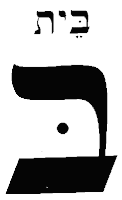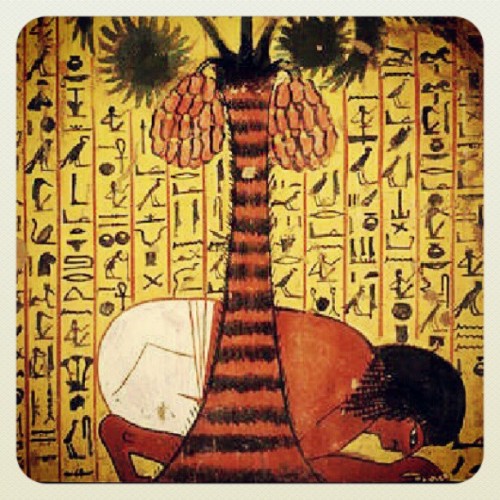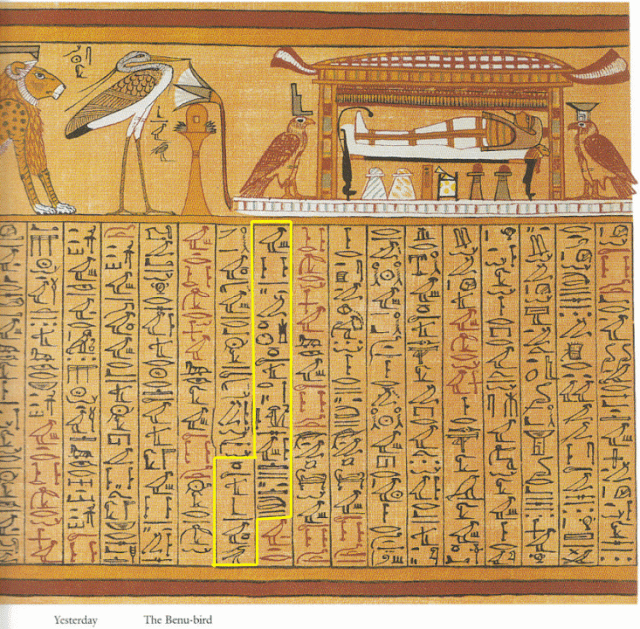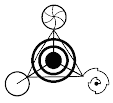Aleph
1 Blessed are they whose ways are blameless,
who walk according to the law of the LORD.
2 Blessed are they who keep his statutes
and seek him with all their heart.
3 They do nothing wrong;
they walk in his ways.
4 You have laid down precepts
that are to be fully obeyed.
5 Oh, that my ways were steadfast
in obeying your decrees!
6 Then I would not be put to shame
when I consider all your commands.
7 I will praise you with an upright heart
as I learn your righteous laws.
8 I will obey your decrees;
do not utterly forsake me.
 Beth
Beth
9 How can a young man keep his way pure?
By living according to your word.
10 I seek you with all my heart;
do not let me stray from your commands.
11 I have hidden your word in my heart
that I might not sin against you.
12 Praise be to you, O LORD;
teach me your decrees.
13 With my lips I recount
all the laws that come from your mouth.
14 I rejoice in following your statutes
as one rejoices in great riches.
15 I meditate on your precepts
and consider your ways.
16 I delight in your decrees;
I will not neglect your word.
 Gimel
Gimel
17 Do good to your servant, and I will live;
I will obey your word.
18 Open my eyes that I may see
wonderful things in your law.
19 I am a stranger on earth;
do not hide your commands from me.
20 My soul is consumed with longing
for your laws at all times.
21 You rebuke the arrogant, who are cursed
and who stray from your commands.
22 Remove from me scorn and contempt,
for I keep your statutes.
23 Though rulers sit together and slander me,
your servant will meditate on your decrees.
24 Your statutes are my delight;
they are my counselors.
 Daleth
Daleth
25 I am laid low in the dust;
preserve my life according to your word.
26 I recounted my ways and you answered me;
teach me your decrees.
27 Let me understand the teaching of your precepts;
then I will meditate on your wonders.
28 My soul is weary with sorrow;
strengthen me according to your word.
29 Keep me from deceitful ways;
be gracious to me through your law.
30 I have chosen the way of truth;
I have set my heart on your laws.
31 I hold fast to your statutes, O LORD;
do not let me be put to shame.
32 I run in the path of your commands,
for you have set my heart free.
 He
He
33 Teach me, O LORD, to follow your decrees;
then I will keep them to the end.
34 Give me understanding, and I will keep your law
and obey it with all my heart.
35 Direct me in the path of your commands,
for there I find delight.
36 Turn my heart toward your statutes
and not toward selfish gain.
37 Turn my eyes away from worthless things;
preserve my life according to your word. [b]
38 Fulfill your promise to your servant,
so that you may be feared.
39 Take away the disgrace I dread,
for your laws are good.
40 How I long for your precepts!
Preserve my life in your righteousness.
 Waw
Waw
41 May your unfailing love come to me, O LORD,
your salvation according to your promise;
42 then I will answer the one who taunts me,
for I trust in your word.
43 Do not snatch the word of truth from my mouth,
for I have put my hope in your laws.
44 I will always obey your law,
for ever and ever.
45 I will walk about in freedom,
for I have sought out your precepts.
46 I will speak of your statutes before kings
and will not be put to shame,
47 for I delight in your commands
because I love them.
48 I lift up my hands to [c] your commands, which I love,
and I meditate on your decrees.
 Zayin
Zayin
49 Remember your word to your servant,
for you have given me hope.
50 My comfort in my suffering is this:
Your promise preserves my life.
51 The arrogant mock me without restraint,
but I do not turn from your law.
52 I remember your ancient laws, O LORD,
and I find comfort in them.
53 Indignation grips me because of the wicked,
who have forsaken your law.
54 Your decrees are the theme of my song
wherever I lodge.
55 In the night I remember your name, O LORD,
and I will keep your law.
56 This has been my practice:
I obey your precepts.
 Heth
Heth
57 You are my portion, O LORD;
I have promised to obey your words.
58 I have sought your face with all my heart;
be gracious to me according to your promise.
59 I have considered my ways
and have turned my steps to your statutes.
60
to obey your commands.
61 Though the wicked bind me with ropes,
I will not forget your law.
62
for your righteous laws.
63 I am a friend to all who fear you,
to all who follow your precepts.
64 The earth is filled with your love, O LORD;
teach me your decrees.
 Teth
Teth
65 Do good to your servant
according to your word, O LORD.
66 Teach me knowledge and good judgment,
for I believe in your commands.
67 Before I was afflicted I went astray,
but now I obey your word.
68 You are good, and what you do is good;
teach me your decrees.
69 Though the arrogant have smeared me with lies,
I keep your precepts with all my heart.
70 Their hearts are callous and unfeeling,
but I delight in your law.
71 It was good for me to be afflicted
so that I might learn your decrees.
72 The law from your mouth is more precious to me
than thousands of pieces of silver and gold.
 Yodh
Yodh
73 Your hands made me and formed me;
give me understanding to learn your commands.
74 May those who fear you rejoice when they see me,
for I have put my hope in your word.
75 I know, O LORD, that your laws are righteous,
and in faithfulness you have afflicted me.
76 May your unfailing love be my comfort,
according to your promise to your servant.
77 Let your compassion come to me that I may live,
for your law is my delight.
78 May the arrogant be put to shame for wronging me without cause;
but I will meditate on your precepts.
79 May those who fear you turn to me,
those who understand your statutes.
80 May my heart be blameless toward your decrees,
that I may not be put to shame.
 Kaph
Kaph
81 My soul faints with longing for your salvation,
but I have put my hope in your word.
82 My eyes fail, looking for your promise;
I say, "When will you comfort me?"
83 Though I am like a wineskin in the smoke,
I do not forget your decrees.
84 How long must your servant wait?
When will you punish my persecutors?
85 The arrogant dig pitfalls for me,
contrary to your law.
86 All your commands are trustworthy;
help me, for men persecute me without cause.
87 They almost wiped me from the earth,
but I have not forsaken your precepts.
88 Preserve my life according to your love,
and I will obey the statutes of your mouth.
 Lamedh
Lamedh
89 Your word, O LORD, is eternal;
it stands firm in the heavens.
90 Your faithfulness continues through all generations;
you established the earth, and it endures.
91 Your laws endure to this day,
for all things serve you.
92 If your law had not been my delight,
I would have perished in my affliction.
93 I will never forget your precepts,
for by them you have preserved my life.
94 Save me, for I am yours;
I have sought out your precepts.
95 The wicked are waiting to destroy me,
but I will ponder your statutes.
96 To all perfection I see a limit;
but your commands are boundless.
 Mem
Mem
97 Oh, how I love your law!
I meditate on it all day long.
98 Your commands make me wiser than my enemies,
for they are ever with me.
99 I have more insight than all my teachers,
for I meditate on your statutes.
100 I have more understanding than the elders,
for I obey your precepts.
101 I have kept my feet from every evil path
so that I might obey your word.
102 I have not departed from your laws,
for you yourself have taught me.
103 How sweet are your words to my taste,
sweeter than honey to my mouth!
104 I gain understanding from your precepts;
therefore I hate every wrong path.
 Nun
Nun
105 Your word is a lamp to my feet
and a light for my path.
106 I have taken an oath and confirmed it,
that I will follow your righteous laws.
107 I have suffered much;
preserve my life, O LORD, according to your word.
108 Accept, O LORD, the willing praise of my mouth,
and teach me your laws.
109 Though I constantly take my life in my hands,
I will not forget your law.
110 The wicked have set a snare for me,
but I have not strayed from your precepts.
111 Your statutes are my heritage forever;
they are the joy of my heart.
112 My heart is set on keeping your decrees
to the very end.
 Samekh
Samekh
113 I hate double-minded men,
but I love your law.
114 You are my refuge and my shield;
I have put my hope in your word.
115 Away from me, you evildoers,
that I may keep the commands of my God!
116 Sustain me according to your promise, and I will live;
do not let my hopes be dashed.
117 Uphold me, and I will be delivered;
I will always have regard for your decrees.
118 You reject all who stray from your decrees,
for their deceitfulness is in vain.
119 All the wicked of the earth you discard like dross;
therefore I love your statutes.
120 My flesh trembles in fear of you;
I stand in awe of your laws.
 Ayin
Ayin
121 I have done what is righteous and just;
do not leave me to my oppressors.
122 Ensure your servant's well-being;
let not the arrogant oppress me.
123 My eyes fail, looking for your salvation,
looking for your righteous promise.
124 Deal with your servant according to your love
and teach me your decrees.
125 I am your servant; give me discernment
that I may understand your statutes.
126 It is time for you to act, O LORD;
your law is being broken.
127 Because I love your commands
more than gold, more than pure gold,
128 and because I consider all your precepts right,
I hate every wrong path.
 Pe
Pe
129 Your statutes are wonderful;
therefore I obey them.
130 The unfolding of your words gives light;
it gives understanding to the simple.
131 I open my mouth and pant,
longing for your commands.
132 Turn to me and have mercy on me,
as you always do to those who love your name.
133 Direct my footsteps according to your word;
let no sin rule over me.
134 Redeem me from the oppression of men,
that I may obey your precepts.
135 Make your face shine upon your servant
and teach me your decrees.
136 Streams of tears flow from my eyes,
for your law is not obeyed.
 Tsadhe
Tsadhe
137 Righteous are you, O LORD,
and your laws are right.
138 The statutes you have laid down are righteous;
they are fully trustworthy.
139 My zeal wears me out,
for my enemies ignore your words.
140 Your promises have been thoroughly tested,
and your servant loves them.
141 Though I am lowly and despised,
I do not forget your precepts.
142 Your righteousness is everlasting
and your law is true.
143 Trouble and distress have come upon me,
but your commands are my delight.
144 Your statutes are forever right;
give me understanding that I may live.
 Qoph
Qoph
145 I call with all my heart; answer me, O LORD,
and I will obey your decrees.
146 I call out to you; save me
and I will keep your statutes.
147 I rise before dawn and cry for help;
I have put my hope in your word.
148 My eyes stay open through the watches of the night,
that I may meditate on your promises.
149 Hear my voice in accordance with your love;
preserve my life, O LORD, according to your laws.
150 Those who devise wicked schemes are near,
but they are far from your law.
151 Yet you are near, O LORD,
and all your commands are true.
152 Long ago I learned from your statutes
that you established them to last forever.
 Resh
Resh
153 Look upon my suffering and deliver me,
for I have not forgotten your law.
154 Defend my cause and redeem me;
preserve my life according to your promise.
155 Salvation is far from the wicked,
for they do not seek out your decrees.
156 Your compassion is great, O LORD;
preserve my life according to your laws.
157 Many are the foes who persecute me,
but I have not turned from your statutes.
158 I look on the faithless with loathing,
for they do not obey your word.
159 See how I love your precepts;
preserve my life, O LORD, according to your love.
160 All your words are true;
all your righteous laws are eternal.
 Sin and Shin
Sin and Shin
161 Rulers persecute me without cause,
but my heart trembles at your word.
162 I rejoice in your promise
like one who finds great spoil.
163 I hate and abhor falsehood
but I love your law.
164 Seven times a day I praise you
for your righteous laws.
165 Great peace have they who love your law,
and nothing can make them stumble.
166 I wait for your salvation, O LORD,
and I follow your commands.
167 I obey your statutes,
for I love them greatly.
168 I obey your precepts and your statutes,
for all my ways are known to you.
 Taw
Taw
169 May my cry come before you, O LORD;
give me understanding according to your word.
170 May my supplication come before you;
deliver me according to your promise.
171 May my lips overflow with praise,
for you teach me your decrees.
172 May my tongue sing of your word,
for all your commands are righteous.
173 May your hand be ready to help me,
for I have chosen your precepts.
174 I long for your salvation, O LORD,
and your law is my delight.
175 Let me live that I may praise you,
and may your laws sustain me.
176 I have strayed like a lost sheep.
Seek your servant,
for I have not forgotten your commands.
Footnotes:1. Psalm 119:1 Chapter 119 This psalm is an acrostic poem; the verses of each stanza begin with the same letter of the Hebrew alphabet.
2. Psalm 119:37 Two manuscripts of the Masoretic Text and Dead Sea Scrolls; most manuscripts of the Masoretic Text life in your way
3. Psalm 119:48 Or for

































































